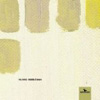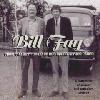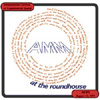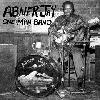Two new shows just for you. We have squeezed out two extended release episodes for this weekend to get you through this week. They contain mostly new songs but there's also new issues from the vaults. The first show features music from Rider/Horse, Mint Field, Robert Aiki Aubrey Lowe, Anastasia Coope, ISAN, Stone Music, La Securite, Bark Psychosis, Jon Rose, Master Wilburn Burchette, Umberto, Wand, Tim Koh, Sun An, and Memory Drawings. The second episode has music by Laibach, Melt-Banana, Chuck Johnson, X, K. Yoshimatsu, Dorothy Carter, Pavel Milyakov, Violence Gratuite, Mark Templeton, Dummy, Endon, body / negative, Midwife, Alberto Boccardi, Divine. Cow in Maui from Veronika in Vienna. Get involved: subscribe, review, rate, share with your friends, send images! |
 Somewhat discontinuous with Quecksilber's output thus far, which hastended to focus on works either more singular in process (ScottHorscroft's 8 Guitars) or more challenging in construction (Ambarchi & Ng's Vigil), Wirkus' third release is, nonetheless, a lovely and substantial slice of autumnal electronica. The one real surprise of Inteletto d'Amoreis that the music was created live without computer, via only threemini disc recorders, run through tremolo effects and mixed down. Ratherthan producing the kind of rough-hewn, shifting sound field that fellowlive-from-disc operator Philip Jeck diligently occupies, Wirkus'approach is much more minimal, a largely additive process where warm,melodic fragments pile up with lace-like delicacy, tracing comfortablewall-patterns. The artist's mini discs sample string quartets, pianopieces, and droning amplifier hiss, all extremely welcoming sounds,placed with enough economy and tasteful repetition to create stablepieces, thick with the hazy lull that people like Jeck and Fenneszconcoct regularly. What they lack in uniqueness, Wirkus' songs make upwith a quality of intimacy that often feels lacking in similarproductions, where the music's melancholic or nostalgic focus threatensto push it towards a remote, bookish level of engagement. Each trackseems cut from the same slow, thoughtful mold, an easy incline into atender plateau where melodious fragments graze the inside of grainystring loops or gentle static envelopes. Wirkus' pacing is entirelyappropriate given the warmth and level luster of the sounds used, andnothing here suffers from thinning structure or a lukewarm melodicsensibility. Inteletto d'Amore's only odd moment comes in thesecond track, "Blask," where the artist adds a vocal over the disc'sonly overtly rhythmic loop (of common amp hum and golden feedback).Sounding eerily like Alan Vega, Wirkus utters a breathy chant thatdoesn't really connect with the comforts of the record overall, and heseems to know this, calling up a hesitant, last-minute delivery withthe same minimal variation as his hypnotic backgrounds. One misstepaside, the disc, while unremarkable, will still demand return listensfrom most fans of experimental electronica or anyone looking for someabsorbing sonic wallpaper.
Somewhat discontinuous with Quecksilber's output thus far, which hastended to focus on works either more singular in process (ScottHorscroft's 8 Guitars) or more challenging in construction (Ambarchi & Ng's Vigil), Wirkus' third release is, nonetheless, a lovely and substantial slice of autumnal electronica. The one real surprise of Inteletto d'Amoreis that the music was created live without computer, via only threemini disc recorders, run through tremolo effects and mixed down. Ratherthan producing the kind of rough-hewn, shifting sound field that fellowlive-from-disc operator Philip Jeck diligently occupies, Wirkus'approach is much more minimal, a largely additive process where warm,melodic fragments pile up with lace-like delicacy, tracing comfortablewall-patterns. The artist's mini discs sample string quartets, pianopieces, and droning amplifier hiss, all extremely welcoming sounds,placed with enough economy and tasteful repetition to create stablepieces, thick with the hazy lull that people like Jeck and Fenneszconcoct regularly. What they lack in uniqueness, Wirkus' songs make upwith a quality of intimacy that often feels lacking in similarproductions, where the music's melancholic or nostalgic focus threatensto push it towards a remote, bookish level of engagement. Each trackseems cut from the same slow, thoughtful mold, an easy incline into atender plateau where melodious fragments graze the inside of grainystring loops or gentle static envelopes. Wirkus' pacing is entirelyappropriate given the warmth and level luster of the sounds used, andnothing here suffers from thinning structure or a lukewarm melodicsensibility. Inteletto d'Amore's only odd moment comes in thesecond track, "Blask," where the artist adds a vocal over the disc'sonly overtly rhythmic loop (of common amp hum and golden feedback).Sounding eerily like Alan Vega, Wirkus utters a breathy chant thatdoesn't really connect with the comforts of the record overall, and heseems to know this, calling up a hesitant, last-minute delivery withthe same minimal variation as his hypnotic backgrounds. One misstepaside, the disc, while unremarkable, will still demand return listensfrom most fans of experimental electronica or anyone looking for someabsorbing sonic wallpaper.Abner Jay was a classic ragtime song-and-dance man, learning his trade with Silas Green's Minstrels in the 1930's and WMAZ Minstrels in Macon during the 40's and 18's. Lap dissolve to the late 60's, and Abner Jay had transformed himself into a one-man-band and traveling nostalgia revue, issuing a series of private press LPs that now trade hands for ridiculously high prices. Sweden's Subliminal Sounds recently released this compilation, collecting material from three of Jay's best albums.
Jay billed himself as America's Last Minstrel Show, and he played an energetic combo of finger-picked banjo and harmonica, working the bass drum with a foot pedal. He introduced each song with bad puns and raunchy jokes, his deep Southern drawl a deliberate caricature of old-time Uncle Tom minstrelsy. It would be tempting to dismiss Abner Jay as a politically-incorrect anachronism, were it not for the obvious talent and intelligence with which he approaches his racially-charged material. By fearlessly accentuating the house Negro stereotypes that defined and imprisoned black performers in the post-Civil War South, Abner Jay is able to transcend them, exorcising the pain of his ancestry.
Nowhere is this more clear than in the heart-breaking song "I'm So Depressed," a track so beautiful and haunting that it floored me upon first listen. Beginning as a traditional-sounding blues lament, Jay's voice suddenly shifts into a high lonesome wail, choking back tears and belting out a series of deeply felt emotional cries that express an ancient sadness. "I was born during the hard depression days...My folks were sharecroppers/We had nothing, we had nothing, we had nothing/But grasshoppers/Looking back over my life/O lord, I'm so depressed."
On "Swaunee," Jay talks at length about his beloved Southern river, it's legacy and importance. Jay's narration is layered over an atmospheric instrumental track punctuated by the chorus of the traditional song, treated to sound like an old 78. Because of my penchant for outsider music, I have heard hundreds of hyped reissues of vanity pressings and much-vaunted musical oddities. Rarely have I heard anything as impressive as Abner Jay's evocative, recollective race-folk. One Man Band is currently the only widely available edition of his music, making it absolutely essential.
 The glam rock era was the first time that popular music openly acknowledged its own superficial tendencies. The first time that the extravagance, glitter and condescension attendant to the rock n' roll lifestyle became an aesthetic badge of honor. Glam, through its emphasis on the primacy of make-up, wardrobe and snarling supercilious attitude, was pop music's first postmodern movement, containing both the substance of rock n' roll, and the commentary on the same. As such, it created a fleeting moment in history where anyone with the right combination of style, poise and bearing could become an overnight sensation, and often just as quickly fade into obsolescence.
The glam rock era was the first time that popular music openly acknowledged its own superficial tendencies. The first time that the extravagance, glitter and condescension attendant to the rock n' roll lifestyle became an aesthetic badge of honor. Glam, through its emphasis on the primacy of make-up, wardrobe and snarling supercilious attitude, was pop music's first postmodern movement, containing both the substance of rock n' roll, and the commentary on the same. As such, it created a fleeting moment in history where anyone with the right combination of style, poise and bearing could become an overnight sensation, and often just as quickly fade into obsolescence.
 Stern and Northam are far from an incompatible pair. Both artists havebeen actively confusing environmental (or "natural") sound andelectronic composition for many years, becoming prominent practitionersof an incredibly tactile, dimension-bending style of electroacousticmusic. The success of their output is as much a product of newtechnology as it is the result of the artists' willingness to plumb thedepths of the world's rubbish bins, forest floors, and highwayshoulders in search of "new" sound devices. Northam, in particular, hasassembled a dense body of work based largely on the rejection ofinstruments with any kind of outside referent, including keen effortsto avoid sound which gives evidence of even the most primitive forms ofmusicianship (i.e. strumming, beating). The artist gathers sound from atable of indiscriminant objects, where man-made refuse, natural forms,and all combinations in between enter the microphone field and feed thegloss of cracks, scrapes, and sandy shivers that become the basis forhis alienating contributions. Northam's music reveals itself as organicbut untraceable; by simulating and warping "natural" sounds, hedemonstrates an interest in examining the process by whichenvironmental sound is internalized, filed away for easy, oftenunreliable reference. Northam's sophisticated process of manipulationallows for something like a "telescoping" of sound events to occur, inwhich certain details are blown up within the already intricateassemblage. Microscopic wrinkles and chirps turn, with surprisingfluidity, to craggy landscapes and squealing waveforms, creating subtledislocations of distance that compound the initial disorientationbrought on by traceless noises. The effect is like passing a magnifyingglass over a mossy creekbed and watching as small green worlds leapinto unexpected life. Wormwood'ssituation is made more complex by the chorus of high-pitched drones andgentle, processed feedback that rise from each piece, giving the disc'ssharper points a soothing undertone and, at times, lifting the surfacenoise toward snarling crescendos. Based on my knowledge of the artists'previous work, I'm guessing these extended tones are Stern's, thoughit's possible that he's equally responsible for the disc's grittiertextures. Whatever the case, the synthetic quality of the backing soundprovides a nice contrast to the mad scramble that remains the music'sprimary focus, working to create many fine moments of expertlyexploited detail and interesting contrast. And while Wormwood hardly rivals some of Northam's grandiose solo works like :coyot:and From Within the Solar Cave, the disc also feels unique and is no easier to pin down.
Stern and Northam are far from an incompatible pair. Both artists havebeen actively confusing environmental (or "natural") sound andelectronic composition for many years, becoming prominent practitionersof an incredibly tactile, dimension-bending style of electroacousticmusic. The success of their output is as much a product of newtechnology as it is the result of the artists' willingness to plumb thedepths of the world's rubbish bins, forest floors, and highwayshoulders in search of "new" sound devices. Northam, in particular, hasassembled a dense body of work based largely on the rejection ofinstruments with any kind of outside referent, including keen effortsto avoid sound which gives evidence of even the most primitive forms ofmusicianship (i.e. strumming, beating). The artist gathers sound from atable of indiscriminant objects, where man-made refuse, natural forms,and all combinations in between enter the microphone field and feed thegloss of cracks, scrapes, and sandy shivers that become the basis forhis alienating contributions. Northam's music reveals itself as organicbut untraceable; by simulating and warping "natural" sounds, hedemonstrates an interest in examining the process by whichenvironmental sound is internalized, filed away for easy, oftenunreliable reference. Northam's sophisticated process of manipulationallows for something like a "telescoping" of sound events to occur, inwhich certain details are blown up within the already intricateassemblage. Microscopic wrinkles and chirps turn, with surprisingfluidity, to craggy landscapes and squealing waveforms, creating subtledislocations of distance that compound the initial disorientationbrought on by traceless noises. The effect is like passing a magnifyingglass over a mossy creekbed and watching as small green worlds leapinto unexpected life. Wormwood'ssituation is made more complex by the chorus of high-pitched drones andgentle, processed feedback that rise from each piece, giving the disc'ssharper points a soothing undertone and, at times, lifting the surfacenoise toward snarling crescendos. Based on my knowledge of the artists'previous work, I'm guessing these extended tones are Stern's, thoughit's possible that he's equally responsible for the disc's grittiertextures. Whatever the case, the synthetic quality of the backing soundprovides a nice contrast to the mad scramble that remains the music'sprimary focus, working to create many fine moments of expertlyexploited detail and interesting contrast. And while Wormwood hardly rivals some of Northam's grandiose solo works like :coyot:and From Within the Solar Cave, the disc also feels unique and is no easier to pin down. For better or worse, many artists slip through the cracks, their worktoo idiosyncratic or esoteric to ignite any interest in the public. Asunfortunate as it is when great art is ignored, it creates the perfectsituation for record collectors and rare music enthusiasts, who deriveendless pleasure from discovering innovative music that wasmarginalized in its era. Once called "Britain's pop Salinger," a namethat is accurate in more ways than one, Bill Fay's unique discographyis perfectly suited for a renaissance of interest and enthusiasm. BillFay recorded two fabulously rare LPs in the early 70's that combinedhis acerbic wit, impressionistic lyrics and apocalyptic religioussymbolism with huge, Scott Walker-style MOR string arrangements andpsychedelic guitar riffs. His songwriting talent is immense, craftingMcCartney-esque pop masterpieces that seem entirely alien to thebizarre, hallucinogenic lyrical themes. Both his debut self-titledalbum and the follow-up Time of the Last Persecutionwere issued together on CD by the now-defunct See For Miles label, andhave since gone out of print. David Tibet's Durtro Records is on theverge of issuing Fay's unreleased third album Tomorrow and Tomorrow.In the interim, British rare-psych label Tenth Planet has released thiscollection of 25 early demos and outtakes on their Wooden Hill imprint.These demos include never-before-heard songs as well as nascentversions of tracks that eventually appeared on the two LPs. This is anextremely exciting release for Bill Fay converts, but it is far fromessential for newcomers, who would be advised to seek out one of histwo original LPs. The recording quality of many of the original tapesis rather poor, and the digital conversion doesn't seem to have helpedmuch. Further, Bill Fay's artistic voice is not as strong in some ofthe earlier material, which seems at first listen a little too similarto The Beatles. Tracks like "Warwick Town" and "Maxine's Parlour" arefine examples of urbane British psych-pop, but they rarely reach thetranscendent weirdness of his later work. However, there are many gemsto be found on Grandfather Clock. The haunting early version of"Garden Song" included here is startling, highlighting Fay's beatificdelivery on spaced-out lines like: "I'm planting myself in thegarden/Between the potatoes and parsley/And I'll wait for the grain toanoint me/And the frost to awaken my soul/I'm looking for lastingrelations/With a green fly, spider or maggot." Though I have a deepaffection for the extravagant string and horn arrangements on thealbums, it's fascinating to hear these songs liberated from the denseproduction. This collection quietly proves that Bill Fay was much morethan an amusing footnote in the history of British psych-pop; he was aliterate and emotive songwriter of the highest order.
For better or worse, many artists slip through the cracks, their worktoo idiosyncratic or esoteric to ignite any interest in the public. Asunfortunate as it is when great art is ignored, it creates the perfectsituation for record collectors and rare music enthusiasts, who deriveendless pleasure from discovering innovative music that wasmarginalized in its era. Once called "Britain's pop Salinger," a namethat is accurate in more ways than one, Bill Fay's unique discographyis perfectly suited for a renaissance of interest and enthusiasm. BillFay recorded two fabulously rare LPs in the early 70's that combinedhis acerbic wit, impressionistic lyrics and apocalyptic religioussymbolism with huge, Scott Walker-style MOR string arrangements andpsychedelic guitar riffs. His songwriting talent is immense, craftingMcCartney-esque pop masterpieces that seem entirely alien to thebizarre, hallucinogenic lyrical themes. Both his debut self-titledalbum and the follow-up Time of the Last Persecutionwere issued together on CD by the now-defunct See For Miles label, andhave since gone out of print. David Tibet's Durtro Records is on theverge of issuing Fay's unreleased third album Tomorrow and Tomorrow.In the interim, British rare-psych label Tenth Planet has released thiscollection of 25 early demos and outtakes on their Wooden Hill imprint.These demos include never-before-heard songs as well as nascentversions of tracks that eventually appeared on the two LPs. This is anextremely exciting release for Bill Fay converts, but it is far fromessential for newcomers, who would be advised to seek out one of histwo original LPs. The recording quality of many of the original tapesis rather poor, and the digital conversion doesn't seem to have helpedmuch. Further, Bill Fay's artistic voice is not as strong in some ofthe earlier material, which seems at first listen a little too similarto The Beatles. Tracks like "Warwick Town" and "Maxine's Parlour" arefine examples of urbane British psych-pop, but they rarely reach thetranscendent weirdness of his later work. However, there are many gemsto be found on Grandfather Clock. The haunting early version of"Garden Song" included here is startling, highlighting Fay's beatificdelivery on spaced-out lines like: "I'm planting myself in thegarden/Between the potatoes and parsley/And I'll wait for the grain toanoint me/And the frost to awaken my soul/I'm looking for lastingrelations/With a green fly, spider or maggot." Though I have a deepaffection for the extravagant string and horn arrangements on thealbums, it's fascinating to hear these songs liberated from the denseproduction. This collection quietly proves that Bill Fay was much morethan an amusing footnote in the history of British psych-pop; he was aliterate and emotive songwriter of the highest order. This 1972 recording catches the iconoclastic British improv ensemble around the time of To Hear and Back Again,where the group was temporarily reduced to the duo of saxophonist LouGare and drummer Eddie Prévost. This is the interim period coming afterAMM's first recordings, those groundbreaking mini-epics of sax andstring-strewn factory ambience, and before the group's later, arguablymore "mature" phase, marked by the introduction of John Tilbury's pianoand a calmer, more subtle playing style. In '72, the temporary absenceof Keith Rowe's tabletop guitar and electronics meant the disappearanceof nearly all of the colorful industrial abstractions that made thegroup's early work such an unclassifiable joy, and in response, the duoof Gare and Prévost dips heavily into free jazz for this performance atLondon's Roundhouse, anticipating their work on Hear and Backtwo years later. The players are clearly competent and practicedcommunicators, making the disc's 47 minutes ample time for a few dozenbeautiful moments to emerge, but it's easy to feel disappointed with Roundhouseas it's really only a sidestep in the path of a group whose best worklies both ahead and behind. Gare demonstrates a keen appreciation forthe free-fractured melodic style of late-period Coltrane, merging withthe wayward stabs of Arkestran contemporary John Gilmore; however theseabilities had been previously established on the first two AMM recordswhere they found brighter placement within the rich textures of theexpanded ensemble, alongside Cornelius Cardew's disembodied cello. Thesaxophonist is more impressive during Roundhouse's quieterpassages where, removed from distraction or compliment, the soft arcs,low warbles, and the other more textural elements of his playing can befully appreciated (and picked out of other recordings). Prévost'splaying is, for the most part, a disappointment. Given the completelyalien repertoire of sound I know the drummer to be capable of, hisrelatively straight-laced performance here becomes my biggest criticismof the disc. Prévost might have been forgiven had he hung back to allowfor more subdued interaction with Gare's tenor, but instead he insistson punctuating most everything with tight, exhaustive snare rolls thatprove tedious before the halfway point. In contrast to other AMM discswhere one unbroken piece receives (seemingly) arbitrary trackdivisions, Roundhouse's single track includes numerous pauses,which, oddly enough, become the music's biggest asset. Continuallyeasing their instruments into and out of silence, Gare and Prévost areforced to repeatedly regenerate the piece from scratch, moldinglistener anticipation and crafting an increasingly complex work. Also,the recording leaves a considerable amount of audience noise and roomambience audible, allowing these sounds to blend with those from thetwo musicians and recalling the famous AMM credo: "Every noise has anote." During particular lulls in the playing, as distant coughs andshuffles enter the mix, I can almost hear the static edge of the absentRowe's shortwave radio, as if this room and these people were justsomething he was lucky enough to find on the dial as the sax and drumsstarted to die down. Moments like these are enough to make Roundhouse worthwhile and to remind me that even mediocre AMM discs make for irresistible listening.
This 1972 recording catches the iconoclastic British improv ensemble around the time of To Hear and Back Again,where the group was temporarily reduced to the duo of saxophonist LouGare and drummer Eddie Prévost. This is the interim period coming afterAMM's first recordings, those groundbreaking mini-epics of sax andstring-strewn factory ambience, and before the group's later, arguablymore "mature" phase, marked by the introduction of John Tilbury's pianoand a calmer, more subtle playing style. In '72, the temporary absenceof Keith Rowe's tabletop guitar and electronics meant the disappearanceof nearly all of the colorful industrial abstractions that made thegroup's early work such an unclassifiable joy, and in response, the duoof Gare and Prévost dips heavily into free jazz for this performance atLondon's Roundhouse, anticipating their work on Hear and Backtwo years later. The players are clearly competent and practicedcommunicators, making the disc's 47 minutes ample time for a few dozenbeautiful moments to emerge, but it's easy to feel disappointed with Roundhouseas it's really only a sidestep in the path of a group whose best worklies both ahead and behind. Gare demonstrates a keen appreciation forthe free-fractured melodic style of late-period Coltrane, merging withthe wayward stabs of Arkestran contemporary John Gilmore; however theseabilities had been previously established on the first two AMM recordswhere they found brighter placement within the rich textures of theexpanded ensemble, alongside Cornelius Cardew's disembodied cello. Thesaxophonist is more impressive during Roundhouse's quieterpassages where, removed from distraction or compliment, the soft arcs,low warbles, and the other more textural elements of his playing can befully appreciated (and picked out of other recordings). Prévost'splaying is, for the most part, a disappointment. Given the completelyalien repertoire of sound I know the drummer to be capable of, hisrelatively straight-laced performance here becomes my biggest criticismof the disc. Prévost might have been forgiven had he hung back to allowfor more subdued interaction with Gare's tenor, but instead he insistson punctuating most everything with tight, exhaustive snare rolls thatprove tedious before the halfway point. In contrast to other AMM discswhere one unbroken piece receives (seemingly) arbitrary trackdivisions, Roundhouse's single track includes numerous pauses,which, oddly enough, become the music's biggest asset. Continuallyeasing their instruments into and out of silence, Gare and Prévost areforced to repeatedly regenerate the piece from scratch, moldinglistener anticipation and crafting an increasingly complex work. Also,the recording leaves a considerable amount of audience noise and roomambience audible, allowing these sounds to blend with those from thetwo musicians and recalling the famous AMM credo: "Every noise has anote." During particular lulls in the playing, as distant coughs andshuffles enter the mix, I can almost hear the static edge of the absentRowe's shortwave radio, as if this room and these people were justsomething he was lucky enough to find on the dial as the sax and drumsstarted to die down. Moments like these are enough to make Roundhouse worthwhile and to remind me that even mediocre AMM discs make for irresistible listening. Little Annie and the Legally Jammin' finds the veteran artist ata crossroads between the past and the present; between the abrasive dubexperimentalism of her early work and the slick sex appeal of moderntechno; between brutal, incendiary poetry and lyrical high camp;between the personal and the superficial; between grim reality andairbrushed artifice. That Little Annie "Anxiety" Bandez is so adept attowing this precarious gap while maintaining an unshakable poise is atestament to her singular skills as a vocalist, lyricist, poet,provocateur and chanteuse. Annie's delivery hasn't missed a beat inmore than 20 years, riding a similar wavelength as Marianne Faithful,Lydia Lunch and Diamanda Galas, but carving out her own uniquelyblaise, street-savvy growl. For The Legally Jammin', Anniebrings together a posse of talented collaborators including Can "Khan"Oral, taking a break from the homoerotic electro of Captain Comatose tocontribute a series of languid, bass-heavy beats to the album. Alsonotable are the contributions of Kid Congo Powers, a former member ofThe Bad Seeds, The Cramps, and the terrific, all-but-forgotten 80'scult band Gun Club. On past collaborations between Khan and Kid CongoPowers, their diverse musical influences resulted in a bluesyelectro-punk hybrid uniquely their own, and it's very much on displayin the settings they create for Little Annie's satiny vocals. All thesongs on the album have a tense, vaguely threatening undercurrent thatsneaks invisibly behind the eroticism of the smooth, sparse production.The resonant bass hits and percolating dub echoes are in full effect onthe album's provocative opener "Bleach." Annie tells us to "love thesinner, hate the sin/love the battle, hate the war/love the saint andlove the whore." Annie keeps a gun beside her bed, "in case successgoes to my head/or just in case it don't." She pauses mid-album for acampy, off-the-cuff monologue about a drag queen that displaysrazor-sharp wit and obscenity of a William S. Burroughs routine. Theserpentine industrial throbs of "Blacktrack Jack" supply the perfectcounterpart to Annie's laundry-list of apocalyptic imagery: "Phoneringing, kids crying, brakes screeching, heads rolling, tears flowing,pipes bursting...head pounding, pleasure mounting, dreams bursting,pockets hurting, prices rising." The album concludes with alanguorously reworked version of "Sugar Bowl," a song from Annie'searly-90's collaborations with On U-Sound superstars. The Legally Jammin' is an alluringly sweet confectionary treat from a talented artist.
Little Annie and the Legally Jammin' finds the veteran artist ata crossroads between the past and the present; between the abrasive dubexperimentalism of her early work and the slick sex appeal of moderntechno; between brutal, incendiary poetry and lyrical high camp;between the personal and the superficial; between grim reality andairbrushed artifice. That Little Annie "Anxiety" Bandez is so adept attowing this precarious gap while maintaining an unshakable poise is atestament to her singular skills as a vocalist, lyricist, poet,provocateur and chanteuse. Annie's delivery hasn't missed a beat inmore than 20 years, riding a similar wavelength as Marianne Faithful,Lydia Lunch and Diamanda Galas, but carving out her own uniquelyblaise, street-savvy growl. For The Legally Jammin', Anniebrings together a posse of talented collaborators including Can "Khan"Oral, taking a break from the homoerotic electro of Captain Comatose tocontribute a series of languid, bass-heavy beats to the album. Alsonotable are the contributions of Kid Congo Powers, a former member ofThe Bad Seeds, The Cramps, and the terrific, all-but-forgotten 80'scult band Gun Club. On past collaborations between Khan and Kid CongoPowers, their diverse musical influences resulted in a bluesyelectro-punk hybrid uniquely their own, and it's very much on displayin the settings they create for Little Annie's satiny vocals. All thesongs on the album have a tense, vaguely threatening undercurrent thatsneaks invisibly behind the eroticism of the smooth, sparse production.The resonant bass hits and percolating dub echoes are in full effect onthe album's provocative opener "Bleach." Annie tells us to "love thesinner, hate the sin/love the battle, hate the war/love the saint andlove the whore." Annie keeps a gun beside her bed, "in case successgoes to my head/or just in case it don't." She pauses mid-album for acampy, off-the-cuff monologue about a drag queen that displaysrazor-sharp wit and obscenity of a William S. Burroughs routine. Theserpentine industrial throbs of "Blacktrack Jack" supply the perfectcounterpart to Annie's laundry-list of apocalyptic imagery: "Phoneringing, kids crying, brakes screeching, heads rolling, tears flowing,pipes bursting...head pounding, pleasure mounting, dreams bursting,pockets hurting, prices rising." The album concludes with alanguorously reworked version of "Sugar Bowl," a song from Annie'searly-90's collaborations with On U-Sound superstars. The Legally Jammin' is an alluringly sweet confectionary treat from a talented artist.  Bobby Conn was so much more charming when he was singing about akwardsexual experiences, teenage cocaine parties and giving blowjobs toadvance in the corporate world. Now that he's aimed his rapier wit atthe ridiculously easy target of the Bush administration, he misses themark almost completely. Perhaps my dislike for The Homelandstems from a fundamental belief that politics and rock n' roll areuneasy bedfellows. I've heard a precious few protest albums that didn'tseem completely dated mere weeks after their release, and they weremade by much shrewder artists that the diminutive Mr. Conn. He and hisband of Glass Gypsies wade through a turgid song cycle satirizing rabidconservatism, "homeland security" and Bush's imperialistic foreignpolicy. Maybe it's me, but don't these seem like rather obvioustargets? Does President Bush - a man so clearly idiotic, insane andwilling to distort the truth in order to further his own nefariouscauses - really need to be lampooned in a series of pastiches on 70'sglam and arena rock? I think The Homeland answers thatquestion, and the answer is a resounding "no." Save for one lonelytrack, there are no memorable tunes on the album, most of the musicstruggling to fit Mr. Conn's convoluted lyrics. Producer John McEntireattempts to compensate for the songwriting's obvious shortcomings byover-arranging every song, introducing a multitude of synthesizers,organs, percussion and strings so that every moment is overwhelmed withcomposition. On the album's opening track, "We Come in Peace," Conntries to graft idiotic lines like "We are your friends, we come inpeace/We brought our guns to set you free" onto the same Boston-styleclassic rock mold that made his last album The Golden Age sohilarious and memorable. Other tracks attempt poor imitations BobbyConn's myriad other influences. Their only entertainment value lies intrying to identify which artist Conn is badly impersonating: the titletrack is Yes' "Heart of the Sunrise," "Relax" takes its cue fromPrince, and "Home Sweet Home" is a piss-poor facsimile of Hunky Dory-eraBowie. "Bus #243" is a lone bright spot, a rollicking song thatdeserves a better place than this record in which to thrive. Then,suddenly and without warning, Conn summarily loses the plot, droppinghis theme for four full tracks before attempting to regain it with thefinal track. I really hate it when artists refuse to follow up properlyon their own stated goals.
Bobby Conn was so much more charming when he was singing about akwardsexual experiences, teenage cocaine parties and giving blowjobs toadvance in the corporate world. Now that he's aimed his rapier wit atthe ridiculously easy target of the Bush administration, he misses themark almost completely. Perhaps my dislike for The Homelandstems from a fundamental belief that politics and rock n' roll areuneasy bedfellows. I've heard a precious few protest albums that didn'tseem completely dated mere weeks after their release, and they weremade by much shrewder artists that the diminutive Mr. Conn. He and hisband of Glass Gypsies wade through a turgid song cycle satirizing rabidconservatism, "homeland security" and Bush's imperialistic foreignpolicy. Maybe it's me, but don't these seem like rather obvioustargets? Does President Bush - a man so clearly idiotic, insane andwilling to distort the truth in order to further his own nefariouscauses - really need to be lampooned in a series of pastiches on 70'sglam and arena rock? I think The Homeland answers thatquestion, and the answer is a resounding "no." Save for one lonelytrack, there are no memorable tunes on the album, most of the musicstruggling to fit Mr. Conn's convoluted lyrics. Producer John McEntireattempts to compensate for the songwriting's obvious shortcomings byover-arranging every song, introducing a multitude of synthesizers,organs, percussion and strings so that every moment is overwhelmed withcomposition. On the album's opening track, "We Come in Peace," Conntries to graft idiotic lines like "We are your friends, we come inpeace/We brought our guns to set you free" onto the same Boston-styleclassic rock mold that made his last album The Golden Age sohilarious and memorable. Other tracks attempt poor imitations BobbyConn's myriad other influences. Their only entertainment value lies intrying to identify which artist Conn is badly impersonating: the titletrack is Yes' "Heart of the Sunrise," "Relax" takes its cue fromPrince, and "Home Sweet Home" is a piss-poor facsimile of Hunky Dory-eraBowie. "Bus #243" is a lone bright spot, a rollicking song thatdeserves a better place than this record in which to thrive. Then,suddenly and without warning, Conn summarily loses the plot, droppinghis theme for four full tracks before attempting to regain it with thefinal track. I really hate it when artists refuse to follow up properlyon their own stated goals.




